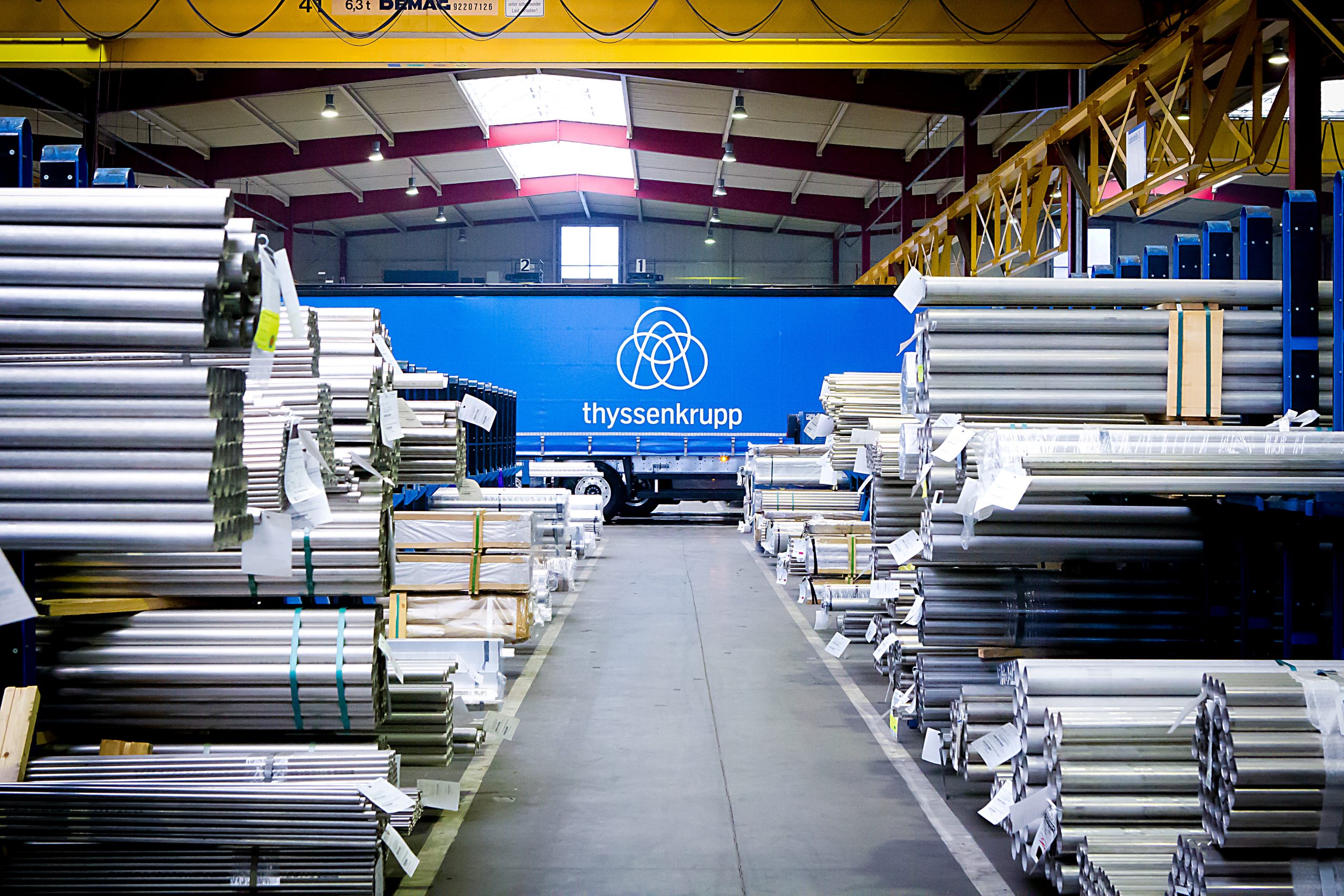Germany’s Thyssenkrupp plans to spin off its steel unit rather than sell it, following several failed attempts at a sale.
CFO Klaus Keysberg, speaking on full-year 2020/21 (to Sept. 30) results call Nov. 18, said that despite the steel market seeming to be in a favorable environment there were no active consolidation talks with other steel peers, and Thyssenkrupp’s focus would remain on carving out the steel business.
“Consolidation could be an option but, as you know, we tried and could not work it out,” Keysberg said.
Thyssenkrupp ended talks in February about selling its steel unit to Liberty Steel, saying “ideas about the corporate value and the structure of the transaction were far apart” and would drive forward a “sustainable position” for steel on its own.
Prior to that, a steel joint venture with Tata Steel Europe was called off in 2019 following the blocking of the plan by the European Commission without further divestments.
Keysberg said Thyssenkrupp would take its time and was conducting a study as to the circumstances under which steel could be made a standalone business.
Nevertheless, Thyssenkrupp said it remained in favor of European steel consolidation in general and that it would give an update on the spin-off in spring “but not necessarily a decision”.
The sale of Thyssenkrupp’s stainless steel plant AS Terni to Italian steel producer Arvedi was expected to close during the current fiscal year.
Steel demand, prices pick up
Like its peers, Thyssenkrupp’s steel unit has profited from a pick-up in demand and increasing steel prices, but fell short of taking full advantage of steel spot increases due to long-term contracts fixed ahead of steel price rises.
Keysberg said those profits will be reflected in the current fiscal year. Long-term contracts are usually 6-12 months but occasionally three months, Keysberg said.
The daily Platts hot-rolled coil assessment reached a record Eur1,190/mt ($1,350/mt) EXW Ruhr on June 25 on material tightness, up from a low at Eur395/mt EXW Ruhr on June 22, 2020.
The spot environment has come under pressure since June due to unclear auto demand and hesitant buying. The Platts hot-rolled assessment stood at Eur990/mt EXW Ruhr on Nov. 17.
Keysberg said the company was seeing a stable spot market at the moment.
During its 2020/21 year, shipments of cold-rolled products increased 9.3% to 6.5 million mt, but fell to 1.5 million mt in its fourth quarter from 1.7 million mt in Q3.
Hot-rolled shipment increased 22% year on year to 3.5 million mt. Within that, shipments fell to 741,000 mt in Q4 from 965,000 mt in Q3.
Crude steel production, including production at semis producer HKM and Thyssenkrupp’s blast furnaces increased 10% year on year, while from 2.8 million mt in Q3 to 2.2 million mt in Q4 due from to a reline of blast furnace No. 1, which restarted in October.
Order intake rose 31% year on year but again fell considerably from Q3 to Q4 due to the reline.
The Materials Services unit, which includes steel distribution, sold 9.1 million mt of materials and raw materials, up 12% year on year. “Demand significantly outpaced supply, so that prices for finished steel in particular continued to reach new highs in the fiscal year,” the company said.
For 2022, Thyssenkrupp expected strong demand recovery, particularly for premium flat steel for the automotive industry, while remaining below pre-pandemic levels. The semiconductor shortage in the auto industry that resulted in canceled volumes of steel remained an uncertainty.
For Material Services however, Thyssenkrupp expects materials supply to return to pre-pandemic level during the current year on the back of increased demand for supply chain and processing services.
The steel unit recorded an EBITDA of Eur214 million in 2020/21, having made a loss of Eur532 million in 2019/20.
— Laura Varriale






